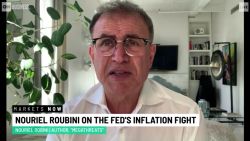Just two months after UK markets suffered their worst meltdown since the global financial crisis, the British government is promising a major relaxation of financial regulation in a bid to shore up the country’s banking and insurance industries against growing competition from cities such as Amsterdam and Paris.
The UK Treasury unveiled more than 30 measures Friday, dubbed the “Edinburgh Reforms.” These include an effort to make it easier for companies to list shares in London, a rethink of short-selling regulations and an addition to the mandate of top regulators, asking them to take account of growth and UK competitiveness when setting rules, instead of just focusing on the smooth and safe functioning of the financial system.
Prime Minister Rishi Sunak’s government is also looking at easing post-2008 rules on separating the trading and retail activities of big banks, as well as reviewing a regulation that made top managers in the banking sector accountable for their conduct. The government is also reportedly sticking with previously announced plans to scrap a cap on banker bonuses — another post-2008 rule aimed at curbing excessive risk-taking.
“We are committed to securing the UK’s status as one of the most open, dynamic and competitive financial services hubs in the world,” Jeremy Hunt, the UK finance minister, said in a statement.
The effort was initially touted as a “Big Bang 2.0” — a nod to the rapid deregulation of UK financial markets under former Prime Minister Margaret Thatcher in 1986. But ministers have moved away from that language, since the reforms are expected to be more gradual.
The changes are a bid to maintain London’s role as a global financial hub after Brexit, which, alongside political turnover, has boosted uncertainty for companies thinking about where to invest.
Yet they also come on the heels of a major financial shock. Earlier this year, investor blowback to plans by former Prime Minister Liz Truss to slash taxes while ramping up government borrowing unleashed turmoil in bond markets, and sent the pound to a record low against the US dollar. The Bank of England had to intervene to avert a wider crash.
Members of the industry sounded their support for the broad reform package. The industry lobby representing UK’s financial services, TheCityUK, said the measures should “help boost the UK’s attractiveness as a place for businesses to list, invest, grow and do business.”
But there are some in the sector who back regulations such as the “ring-fencing” rules. They think the requirement that banks separate more risky investing activity from their business managing customer deposits could help guard against shocks, and make it less likely the government would need to use taxpayer money to bail out failing banks.
























